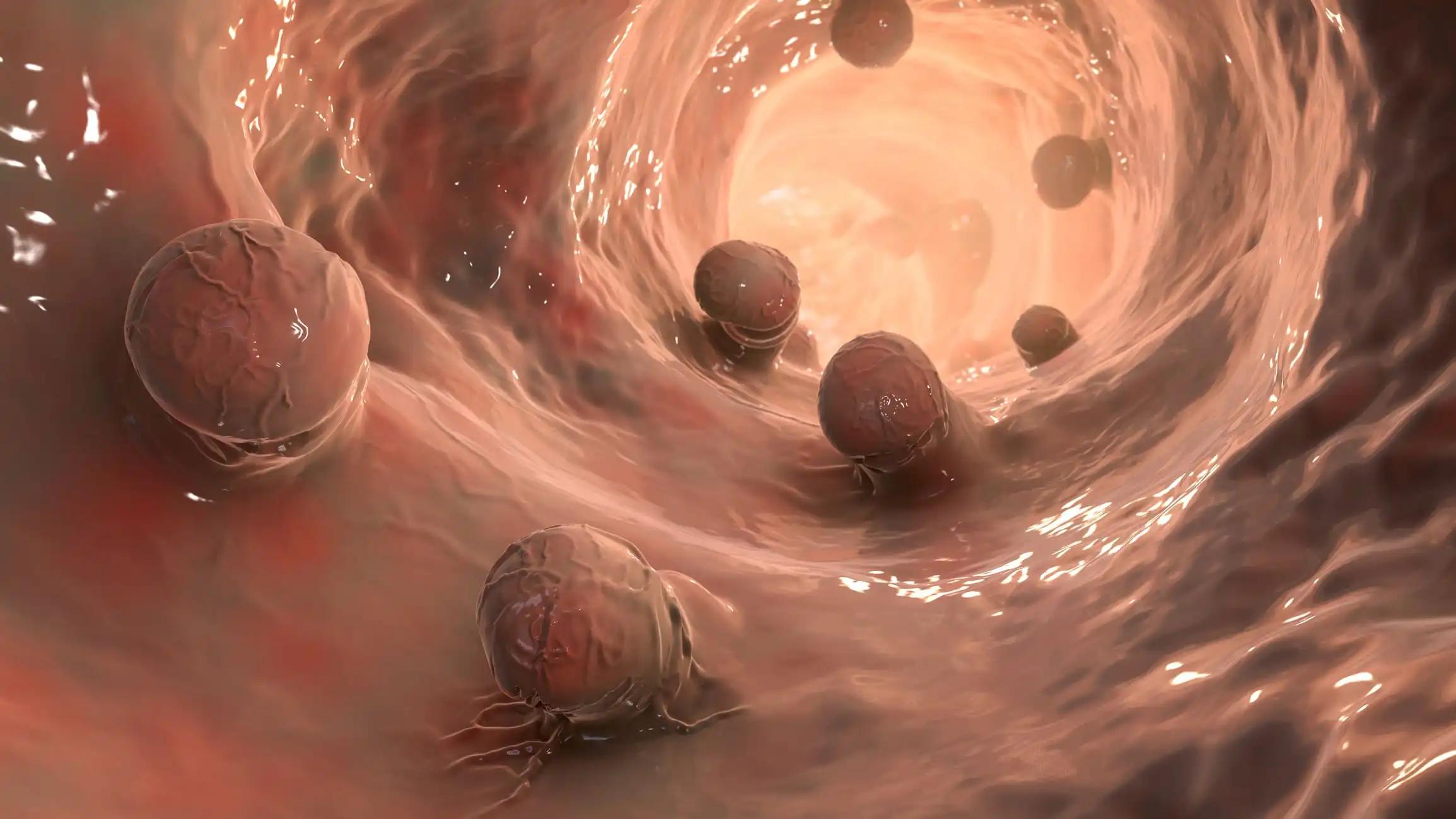KEY TAKEAWAYS
- The phase 1/2 trial aimed to investigate the safety, tolerability, and clinical activity of BDC-1001 + nivolumab in HER2+ advanced gastroesophageal cancers pts.
- The primary objective is to determine the antitumor activity of BDC-1001 + nivolumab.
- The trial is ongoing and results are yet to be presented.
Despite progress in managing HER2-driven solid tumors, there is a persistent need for innovative approaches. BDC-1001, an immune stimulating antibody conjugate (ISAC), combines a trastuzumab biosimilar with a TLR7/8 agonist, aiming to activate the innate immune system and induce a durable tumor-targeted adaptive immune response in advanced/metastatic colorectal, endometrial, and gastroesophageal cancers.
Preclinical studies demonstrated potent and enduring antitumor efficacy of HER2-targeted ISACs, resulting in complete tumor regression through TLR- and Fc receptor-dependent mechanisms.
The phase 1 dose escalation of the first-in-human study (BBI-20201001) established 20 mg/kg every 2 weeks of BDC-1001 as the recommended phase 2 dose (RP2D) for monotherapy/combo regimens. In the phase 1 portion, BDC-1001 was well-tolerated, with grade 1/2 infusion-related reactions (29%). Improved outcomes were observed with targeted Cmin ≥10mg/mL, especially at the q2w RP2D. Notably, 6 patients (pts) (3 mono) achieved partial response (PR), 12 pts (10 mono) attained stable disease (SD) ≥24 wks, and 14 pts with evaluable HER2+ tumors at RP2D demonstrated a clinical benefit rate of 50% (29% confirmed PR, additional 21% SD ≥24wks). Tumor shrinkage occurred in 64%, and 36% of pts remain on active treatment. Pharmacodynamic responses in plasma and paired tumor biopsies (protein/gene analyses) revealed immune activation consistent with ISAC technology, exceeding expectations set by trastuzumab alone.
The ongoing phase 2 (dose expansion) assesses BDC-1001 alone and with nivolumab in HER2+(protein or gene) advanced/metastatic colorectal, endometrial, and gastroesophageal cancers.
Ecaterina Dumbrava and her team aimed to assess the clinical efficacy and safety of BDC-1001 in pts with HER2+ solid tumors.
The study will perform an inclusive analysis through a multiarm phase 2 trial, evaluating the administration of 20 mg/kg q2w of BDC-1001 as monotherapy (Part 3) and in combination with nivolumab (Part 4). Employing Simon’s 2-stage design, the trial will enroll 231 pts across the United States, Europe, and South Korea.
The primary objective of the phase 2 is to assess the preliminary antitumor activity of BDC-1001, both as a standalone treatment and in combination with nivolumab. Secondary objectives encompass the evaluation of safety, pharmacokinetics, and immunogenicity of BDC-1001 in both monotherapy and combination settings. Exploratory objectives involve analyzing pharmacodynamic biomarkers in tumor tissue and peripheral blood, offering insights into the mechanism of action and identifying biomarkers associated with BDC-1001’s biological activity.
The trial is ongoing, and further information regarding its progress and outcomes will be provided in subsequent updates.
The study is sponsored by Bolt Biotherapeutics, Inc.
Source: https://jitc.bmj.com/content/11/Suppl_1/A811
Clinical Trial: https://clinicaltrials.gov/study/NCT04278144
Coupe N, Pinato D J, Fairchild J, et al. (2023). “ IMPORT-201 (IMP-MEL): a phase 1 first-in-human dose finding/randomized phase 2 study of a novel iNKT agonist (PORT-2) and pembrolizumab for advanced melanoma and non-small cell lung cancer (NSCLC). ” Presented at SITC 2023 (Abstract 712).



